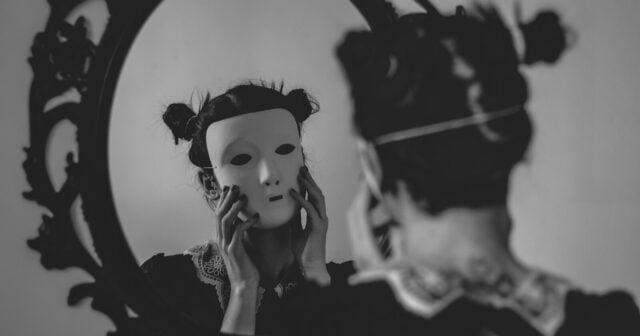Demystifier: An ED Original where we take a complex topic but the content is written in such a way that it is knowledgeable and easy to comprehend at the same time.
We humans have this constant itch to blend with our social surroundings. A part to be precise, that always wants to belong in the superficial social fabric, constructed by society.
This ‘want and desire to belong’ is in our nature as humans and despite many efforts, we cannot deny it.

We all are in constant need of people with whom we can relate to and share our identities, as we try to manoeuver through the world which at times can feel very lonely and overwhelming.
Living at the intersection of different identities and culture
It is undeniable that one of the easiest ways to ease our loneliness and find belonging is through our racial identities.
We are naturally drawn towards those whose physical appearance is similar to ours and who may hold the same values as ourselves. And this is especially true for ethnic minority groups.
However, how is this search for belonging realised by people? Do they even succeed?

‘Mixed race’, a socially constructed term and hence the quotation marks, is rather broad. After all, there is no fixed ‘mixed-race community’ we can join nor is there any recorded ‘mixed-race history’ to take pride in.
The possibilities of ‘mixed-race community’ are endless and so is their vulnerability to falling prey to the ‘racial imposter syndrome’.
What is ‘Racial Imposter Syndrome’?
‘Racial imposter syndrome’ is the feeling that says, “you don’t belong here” and makes one question their identity, culture and everything that makes them an individual.
It doesn’t matter how qualified you are, how much positive feedback you may receive, or how hardworking and diligent you are, you just can’t shake this notion off that you’re just not capable enough.
You choose low metrics over and over again to measure your worth and therefore you’re doomed for failure.

In other words, racial imposter syndrome is that voice in your head which tells you that you’re not good enough and you never will be. Not to mention, people of colour are particularly vulnerable to this phenomenon.
Read more: Your Skin isn’t Your Identity But It Still Decides Your Destiny. We Ask You, What’s in a Color?
According to a study conducted by Kevin Cokley, a professor at the University of Texas at Austin, racial imposter syndrome can lead to increased stress among minorities.
As a result of the microaggressions in real life, people tend to become their own aggressors because of their delusional incapabilities and end up filling themselves with a negative internal dialogue that can further deteriorate to poor physical and mental care.
With racial imposter syndrome, it becomes rather easy to believe any lies constructed by both society and your brain.
You are enough, thousand times enough
If you’re struggling with racial imposter syndrome, then make sure that you remind yourself of your own achievements. Bring in all your past rebellious teen talk with your parents here. This is precisely why you had practised those talks with your parents back then.
Because it’s important to remember here that regardless of how you attempt to present yourself, people will always think about you and your identity on their terms and will treat you accordingly. And it is in no way a losing battle.

The only opinion that matters is that of your own. People will say and treat you the way they want but why should you also treat yourself the way they want and not yours?
So, here’s something to think about, in case you thought what to do about it. Treat yourself like you want and have always wanted.
It’s really relevant to think beyond racial issues. Always remember that it is not your duty to validate yourselves to anyone but yourselves. True peace always lies in internal validation and not external validation.
It’s just how psychologist Maria Root’s has said it in her ‘Bill of Rights for People of Mixed Heritage’:
“I HAVE THE RIGHT…
Not to justify my existence in this world.
Not to keep the races separate within me.
Not to be responsible for people’s discomfort with my physical ambiguity.
Not to justify my ethnic legitimacy.
I HAVE THE RIGHT…
To identify myself differently than strangers expect me to identify.
To identify myself differently from how my parents identify me.
To identify myself differently from my brothers and sisters.
To identify myself differently in different situations.
I HAVE THE RIGHT…
To create a vocabulary to communicate about being multiracial.
To change my identity over my lifetime — and more than once.
To have loyalties and identification with more than one group of people.
To freely choose whom I befriend and love.”
Image Credits: Unsplash, Google Images
Sources: The New York Times, Medium, HuffPost
Find the blogger at: @sejalsejals38
This post is tagged under: Racial imposter syndrome, Imposter syndrome, social anxiety, stress, depression, University of Texas, Austin, Mixed race, Mixed community, Bill of Rights for People of Mixed Heritage, Psychologist Maria Root’s, How is the search for belonging realised by people































